
Discover the Serene Beauty of the Comoe River
The Comoe River in Cote d'Ivoire is a mesmerizing destination for nature lovers and adventure seekers alike. Flowing through the lush Comoe National Park, this river offers visitors an unparalleled opportunity to immerse themselves in the rich biodiversity and tranquil landscapes of West Africa. Travelers can enjoy a variety of activities along the Comoe River, from relaxing boat rides to exciting wildlife safaris. The riverbanks are teeming with life, featuring diverse flora and fauna that make for unforgettable sightseeing. Bird watchers will be particularly delighted by the array of colorful species that inhabit the region. The Comoe River is also steeped in cultural significance. The local communities that live along the river have preserved their traditional ways of life, providing tourists with a unique glimpse into Ivorian culture. Visiting the Comoe River is not just a trip through nature, but also a journey through time, offering a deep connection to the heritage and traditions of Cote d'Ivoire.
Local tips in Comoe River
- Visit during the dry season (November to April) for the best wildlife viewing opportunities.
- Hire a local guide for a more informative and safe exploration of the area.
- Bring binoculars for bird watching as the river area is home to many unique bird species.
- Pack insect repellent to protect against mosquitoes, especially if you're visiting in the wet season.
- Respect local customs and traditions when visiting nearby villages.
Discover the Serene Beauty of the Comoe River
The Comoe River in Cote d'Ivoire is a mesmerizing destination for nature lovers and adventure seekers alike. Flowing through the lush Comoe National Park, this river offers visitors an unparalleled opportunity to immerse themselves in the rich biodiversity and tranquil landscapes of West Africa. Travelers can enjoy a variety of activities along the Comoe River, from relaxing boat rides to exciting wildlife safaris. The riverbanks are teeming with life, featuring diverse flora and fauna that make for unforgettable sightseeing. Bird watchers will be particularly delighted by the array of colorful species that inhabit the region. The Comoe River is also steeped in cultural significance. The local communities that live along the river have preserved their traditional ways of life, providing tourists with a unique glimpse into Ivorian culture. Visiting the Comoe River is not just a trip through nature, but also a journey through time, offering a deep connection to the heritage and traditions of Cote d'Ivoire.
When is the best time to go to Comoe River?
Iconic landmarks you can’t miss
Parc National du Banco
Discover Abidjan's natural heart: hiking trails, diverse wildlife, and serene escapes await in this preserved urban forest.
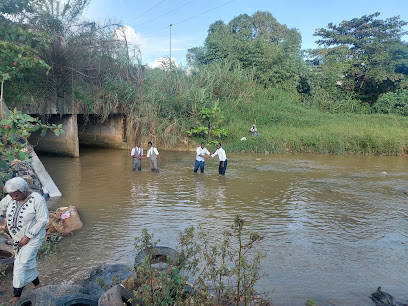
Zoo d'Abidjan
Discover West Africa's wildlife at Zoo d'Abidjan: a conservation hub showcasing diverse species in a family-friendly environment.
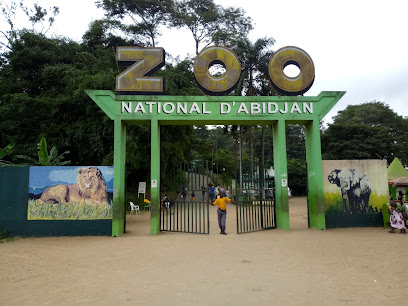
St. Paul's Cathedral
Discover Abidjan's architectural marvel, St. Paul's Cathedral: a symbol of faith, art, and Ivorian culture, offering panoramic city views.
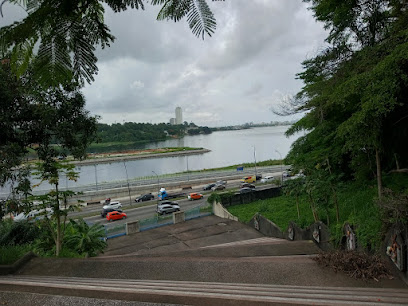
Plateau Mosque
Discover Abidjan's Plateau Mosque: A modern architectural marvel and a serene center of Islamic culture in the heart of the city.
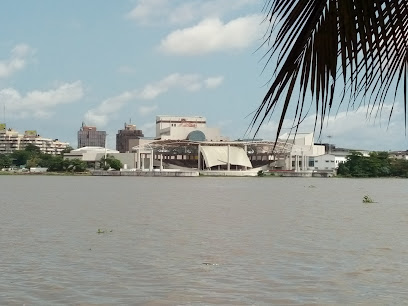
Botanical Garden
Discover a world of botanical wonders at Bingerville Botanical Garden, a historic Ivorian sanctuary of diverse plant life and tranquil beauty.
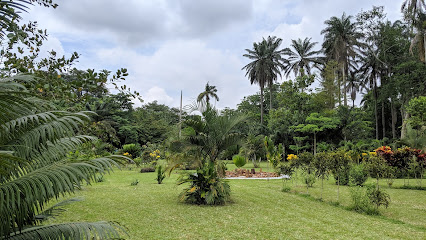
Kafolo Lagoon
Escape to Kafolo Lagoon: Abidjan's serene resort with lush greenery, diverse activities, and a charming zoo for an unforgettable experience.

Musée des Civilisations de Côte d'Ivoire
Explore Côte d'Ivoire's vibrant history and cultural diversity at the Musée des Civilisations in Abidjan. A journey through art, traditions, and heritage.
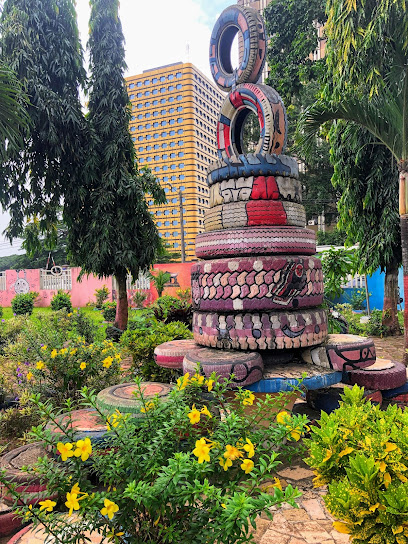
Man's Waterfalls
Discover the natural beauty and cascading wonders of Man's Waterfalls in Côte d'Ivoire, a serene escape into nature's embrace.
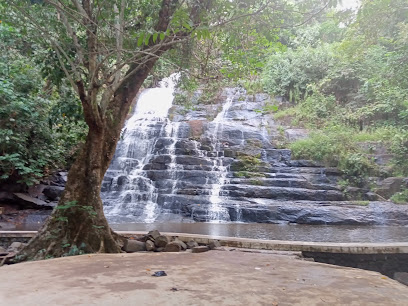
National Museum of Costume
Discover Côte d'Ivoire's cultural heritage through traditional costumes and artifacts at the National Museum of Costume in Grand-Bassam.
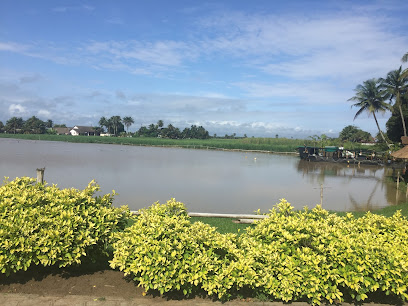
Lighthouse Grand Bassam
Explore the historic Lighthouse Grand-Bassam, a beacon of colonial heritage with stunning coastal views in Côte d'Ivoire.
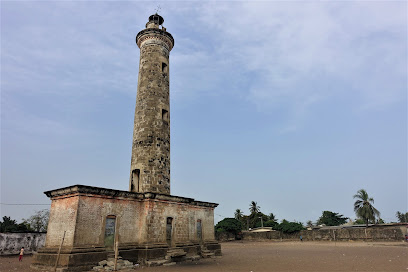
Ganamet House
Explore Ganamet House in Grand-Bassam: A unique blend of colonial history and architecture in a UNESCO World Heritage Site.
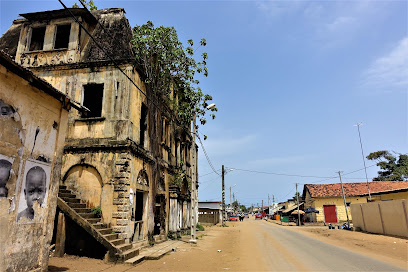
Comoé National Park
Explore Côte d'Ivoire's Comoé National Park: a UNESCO site with diverse savanna, forests, and abundant wildlife. A West African treasure!
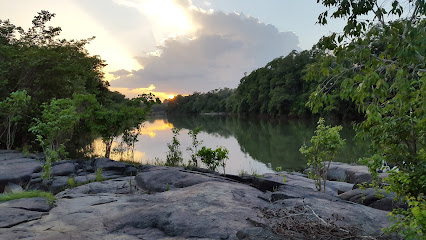
Sanctuaire Marial
Discover Abidjan's Sanctuaire Marial: A spiritual oasis and architectural marvel dedicated to the Virgin Mary, welcoming pilgrims and visitors alike.
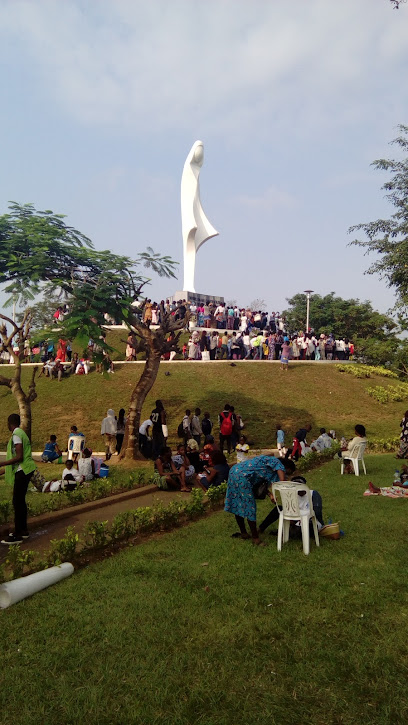
Comoe
Explore the Comoe River, a West African treasure, for its stunning landscapes, rich biodiversity, and cultural significance.
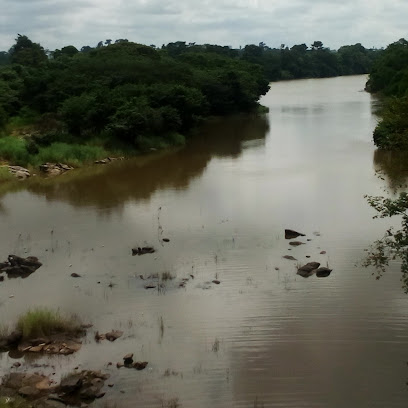
CFAO Store
Discover authentic Ivorian crafts and immerse yourself in the local culture at CFAO Store, a must-visit destination in historic Grand-Bassam.
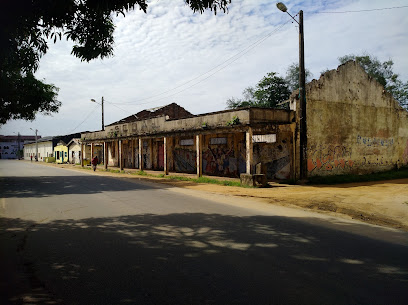
Unmissable attractions to see
The Basilica of Our Lady of Peace of Yamoussoukro
Discover the world's largest church in Yamoussoukro, a stunning basilica inspired by St. Peter's, showcasing faith and architectural grandeur.
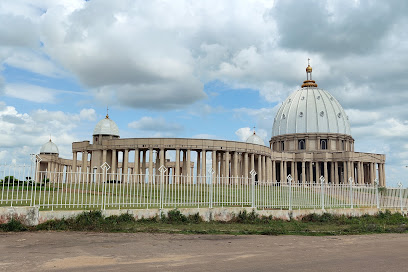
Paradisia Abidjan
Discover the thrills and family fun at Paradisia Abidjan, the ultimate amusement park adventure in the heart of Ivory Coast.
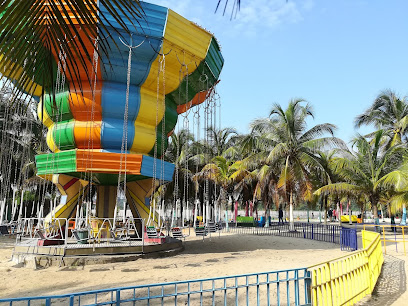
Musée des Civilisations de Côte d'Ivoire
Explore the vibrant culture and history of Ivory Coast at the Musée des Civilisations de Côte d'Ivoire, a must-visit destination for every traveler.
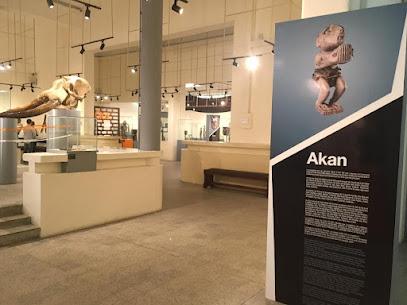
Musée des Civilisations de Côte d'Ivoire
Discover the essence of Côte d'Ivoire's cultural heritage at the Musée des Civilisations, a captivating museum in Abidjan showcasing rich traditions and history.
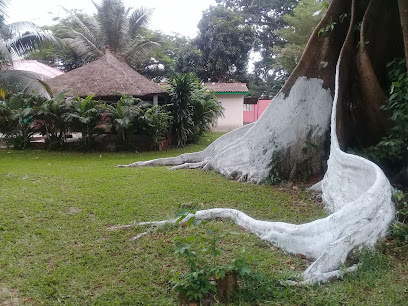
Domaine BINI
Explore the natural beauty and ecological richness of Domaine BINI, an enchanting park in Abidjan Lagune perfect for nature lovers and adventure seekers.
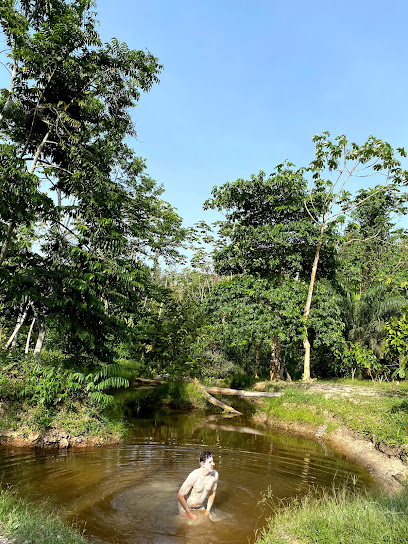
Galerie Cécile Fakhoury
Discover contemporary art from Africa and the diaspora at Galerie Cécile Fakhoury, a leading gallery in Abidjan promoting artistic diversity.
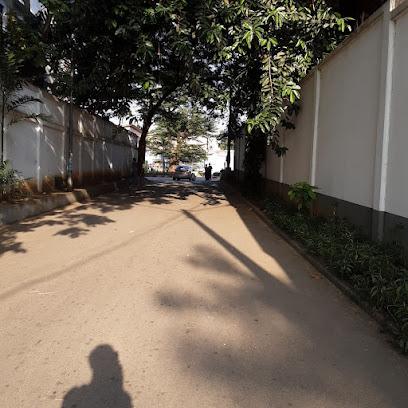
Ganamet House
Explore Ganamet House in Grand-Bassam: A captivating blend of colonial architecture and Ivorian heritage, echoing the city's vibrant past.
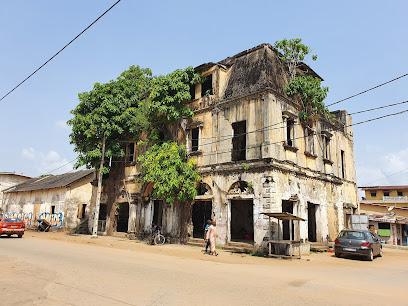
Sanctuaire Marial
Discover Abidjan's Sanctuaire Marial National: a spiritual landmark offering peace, stunning architecture, and a deep connection to Ivorian culture.
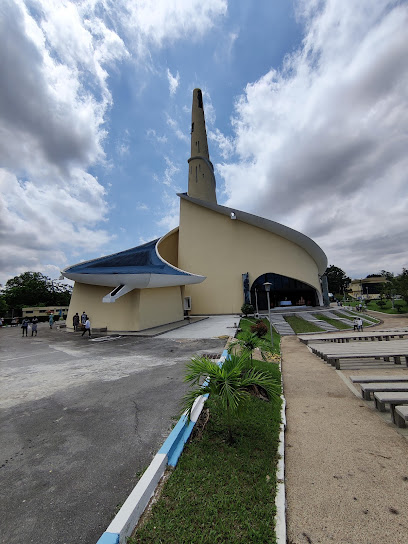
San-pedro
Experience the captivating coastal beauty and vibrant culture of San-Pedro, a hidden gem in Côte d'Ivoire perfect for every traveler.
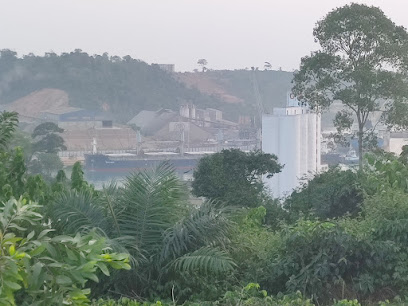
Splash Park Yopougon
Discover the fun and excitement at Splash Park Yopougon, a premier water park in Abidjan, offering thrilling slides, family-friendly pools, and a vibrant atmosphere.
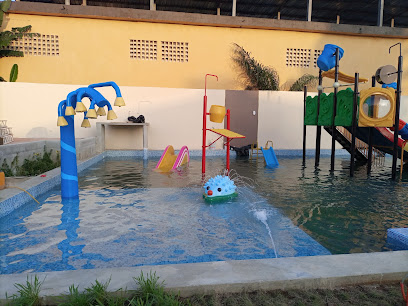
Soubre
Explore Soubre, a charming tourist attraction in Abidjan, where rich culture meets stunning landscapes and warm hospitality.
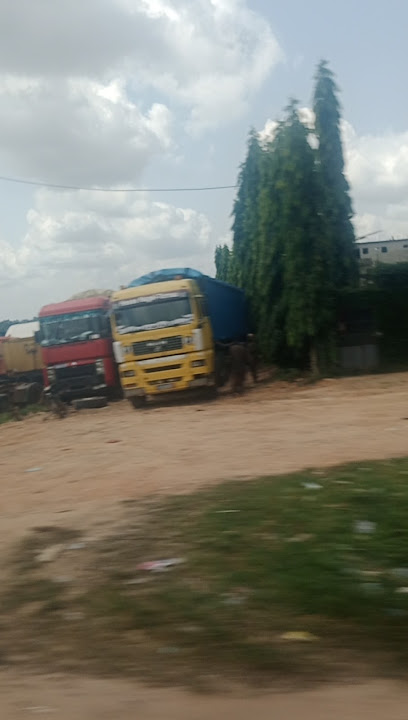
Canal de vridi
Explore the enchanting Canal de Vridi in Abidjan, a serene waterway perfect for leisurely strolls, local culture, and delicious cuisine.
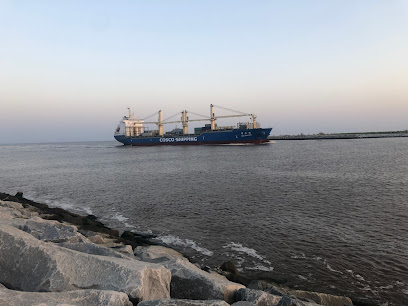
Monts Mafa
Discover the mystical Monts Mafa: twin peaks offering spiritual solace and stunning views in Côte d'Ivoire.
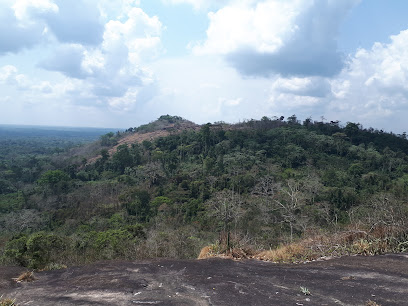
Embouchure du fleuve Comoé
Explore the stunning Embouchure du fleuve Comoé, where the Comoé River meets the Atlantic Ocean, perfect for nature lovers and adventure seekers.
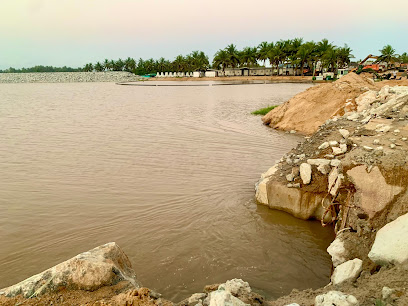
Bassam Sunset Beach
Experience the stunning sunsets and serene beauty of Bassam Sunset Beach in Grand-Bassam, the perfect retreat for beach lovers and adventurers alike.
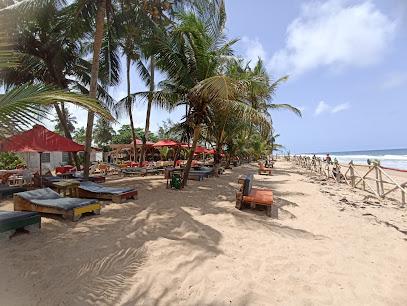
Essential places to dine
Bushman Café
Discover unique flavors at Bushman Café in Cocody, Abidjan – where local cuisine meets vibrant culture.
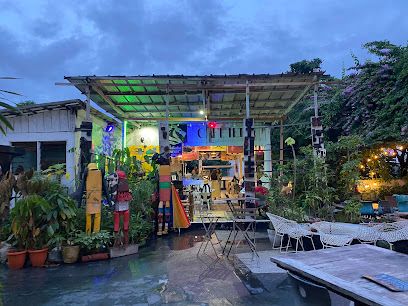
Copa D'Elio
Experience authentic Italian pizza at Copa D'Elio in Abidjan—where local flavors meet traditional recipes for an unforgettable meal.
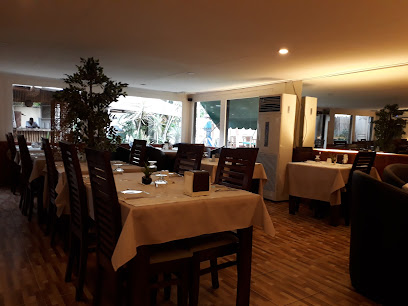
Restaurant Saakan
Discover exquisite Ivorian cuisine at Restaurant Saakan in Abidjan – where culinary artistry meets cultural heritage.
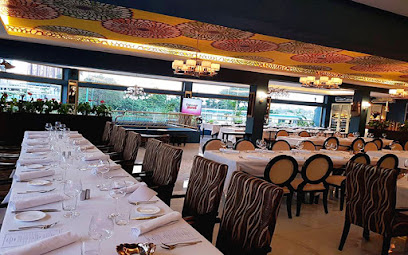
O'Good Food
Discover the flavors of Abidjan at O'Good Food – where local ingredients meet global cuisine in a vibrant setting.
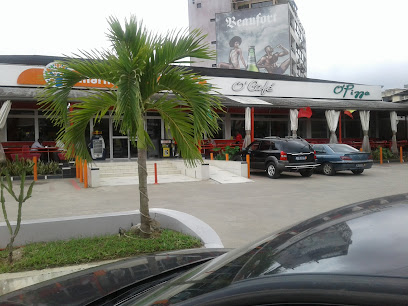
Maquis Coup de Frein
Discover authentic Ivorian cuisine at Maquis Coup de Frein - where every meal is a celebration of flavor and culture.
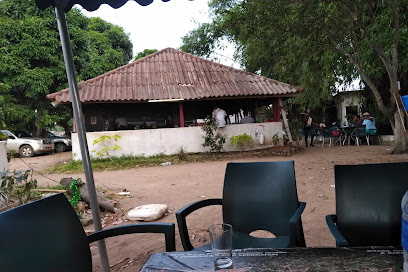
Restaurant Kajazoma
Discover the flavors of Côte d'Ivoire at Restaurant Kajazoma, where authentic Ivorian cuisine meets warm hospitality in Abidjan.
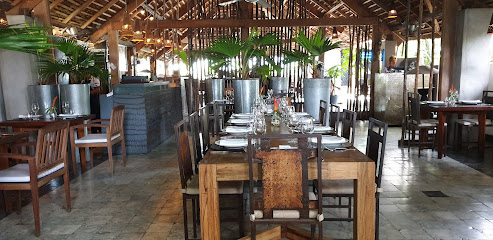
La Taverne Romaine
Discover exquisite dining at La Taverne Romaine in Abidjan's Plateau district, offering local flavors and international cuisine in an elegant setting.
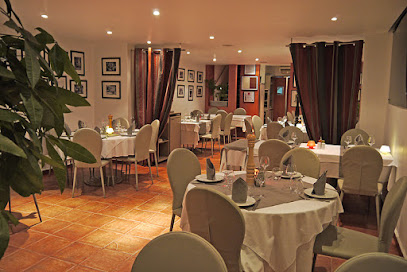
Restaurant Chez Arthur
Experience authentic Ivorian flavors and international delights at Restaurant Chez Arthur in Abidjan's lively Cocody district.
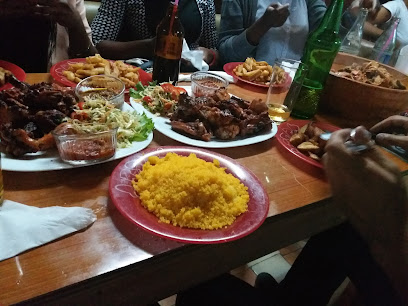
Le Grand Large
Experience culinary excellence at Le Grand Large in Abidjan - where fine dining meets elegance and exceptional service.
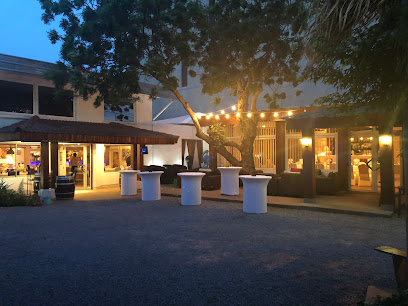
Le Comptoir Bar & Restaurant
Discover Le Comptoir Bar & Restaurant in Abidjan - where local flavors meet international elegance in a stunning setting.
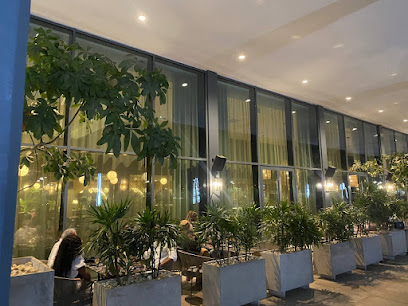
La Villa Alfira
Experience the vibrant flavors of Côte d'Ivoire at La Villa Alfira - where culinary artistry meets warm hospitality.
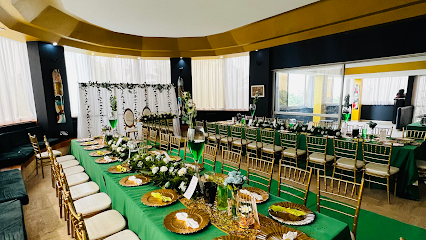
Restaurant hôtel LA MANGROVE
Experience authentic Ivorian flavors at Restaurant Hôtel La Mangrove in Abidjan - a culinary haven for tourists seeking local delights.
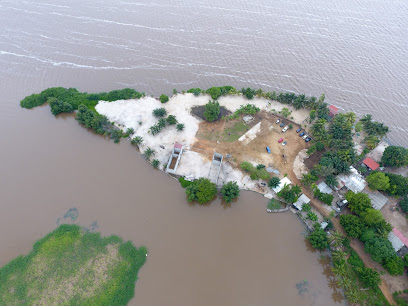
La Croisette
Discover La Croisette in Abidjan - where local flavors meet international cuisine in a vibrant dining atmosphere.
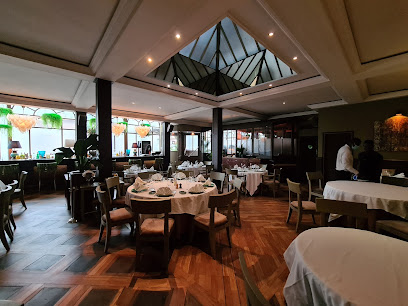
Restaurant Le Burkina
Experience the rich flavors of Ivorian cuisine at Restaurant Le Burkina in Abidjan - a must-visit culinary destination for tourists.
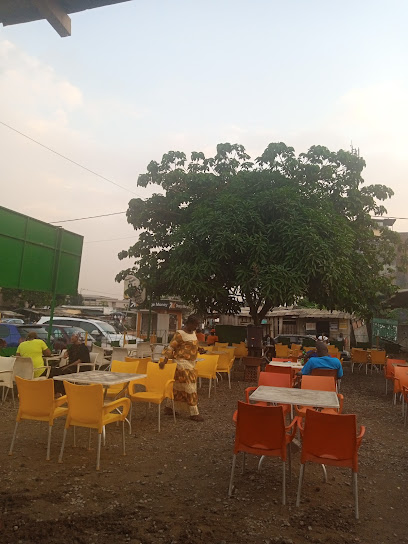
MIAMI BEACH
Experience Miami Beach's vibrant dining culture with stunning ocean views and diverse culinary delights that reflect its rich cultural heritage.
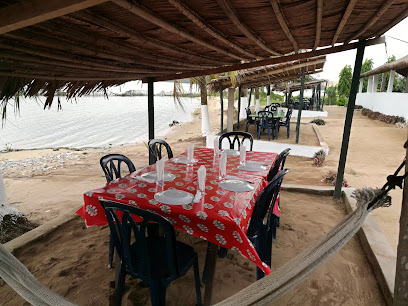
Markets, malls and hidden boutiques
Cap Sud
Discover Cap Sud in Abidjan: A bustling shopping mall with diverse shops, delightful dining, and vibrant entertainment for every tourist.
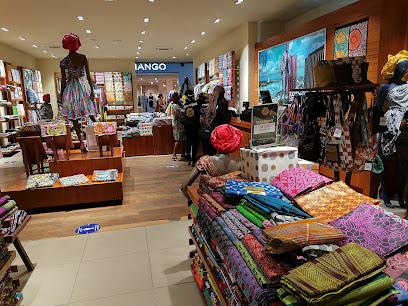
Sococe Mall
Experience the heart of Abidjan at Sococe Mall, a vibrant shopping destination with diverse stores, dining, and entertainment options.
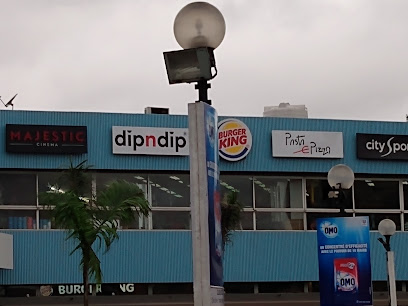
Abidjan Mall
Experience the bustling atmosphere of Abidjan Mall, your ultimate shopping destination for fashion, dining, and entertainment in Côte d'Ivoire.
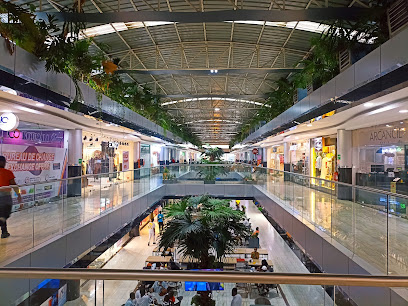
Issam Boutique
Discover local flavors and essentials at Issam Boutique, the premier supermarket in Daoukro for tourists and locals alike.

Adama Boutique
Discover the vibrant shopping experience at Adama Boutique in Agnibilekrou, offering fresh local produce and essential goods for every traveler.
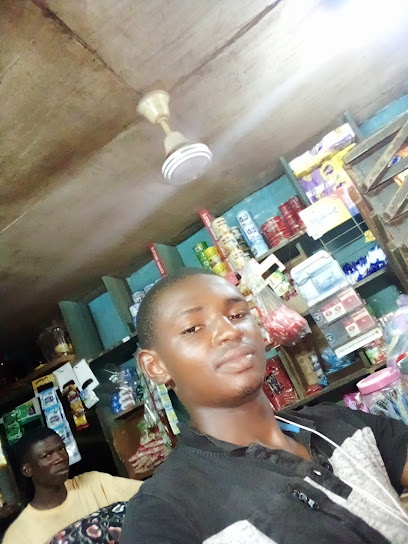
Boutique Gnamien MÔ
Explore Boutique Gnamien MÔ in Daoukro for unique fashion that celebrates the vibrant culture of Côte d'Ivoire.

Mr.Balde
Explore the charm of Prikro at Mr.Balde, where local crafts and unique gifts await every traveler.

Lyn K Boutique
Explore sustainable fashion at Lyn K Boutique in Abengourou, offering a curated selection of used clothing for the whole family.
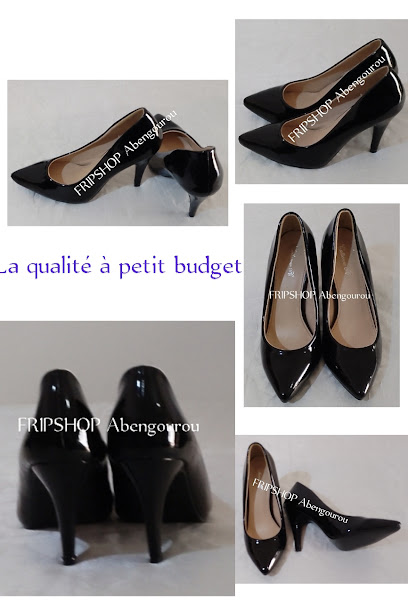
FLOR'ATOUTS Pick-up point
Explore the essence of Ivory Coast at FLOR'ATOUTS, your premier destination for unique gifts and authentic souvenirs in Abidjan.

Chez Albert Etcho
Discover authentic local treasures at Chez Albert Etcho in Komoé-Dénou, where culture meets vibrant shopping experiences.

Abass boutique
Discover local flavors and authentic Ivorian products at Abass Boutique in N'Gattakro, a vibrant supermarket experience.

Satikran
Explore the heart of Assémaouno through Satikran, your go-to grocery store for authentic Ivorian flavors and local delicacies.

Boutique bon prix du résidentiel
Explore Boutique Bon Prix du Résidentiel - a vibrant shopping destination in Daoukro, offering a unique blend of local culture and modern retail experiences.

Supérette Bénie
Explore the cultural essence of Côte d'Ivoire at Supérette Bénie, a vibrant store in N'Gattakro offering local delicacies and unique finds.

Boutique Uranus
Explore Boutique Uranus in Daoukro for an unforgettable shopping experience blending local culture with modern retail.

Essential bars & hidden hideouts
Chill Out
Discover Chill Out in Abidjan: a perfect blend of relaxation and culinary delight in a stylish lounge atmosphere.
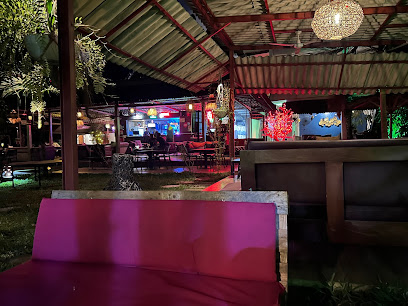
Parker Place
Experience the vibrant nightlife at Parker Place, Abidjan's premier lounge and live music venue, where local culture comes alive.
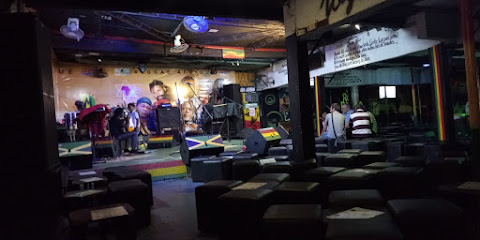
Vista Lounge
Experience the vibrant nightlife of Abidjan at Vista Lounge, a chic rooftop venue with stunning views and exquisite cocktails.
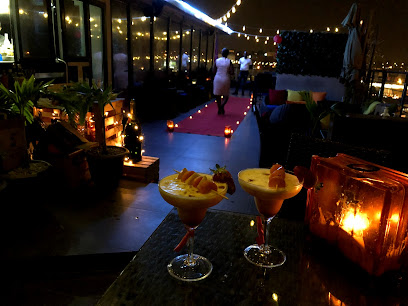
BLØØM
Discover the vibrant nightlife and delicious cuisine at BLØØM Lounge, a top destination in Abidjan for food lovers and night owls.
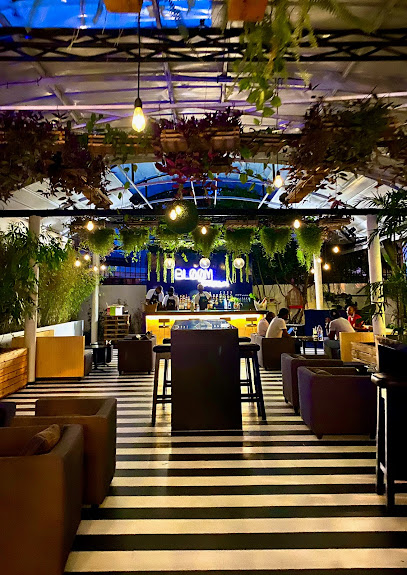
Acoustic
Discover Abidjan's lively nightlife at Acoustic, a vibrant lounge offering music, drinks, and unforgettable experiences.
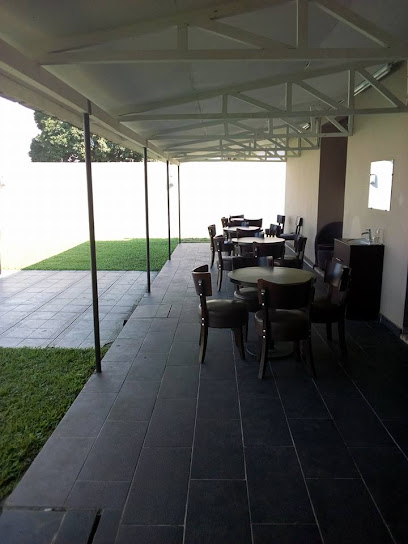
The RooPh
Experience the vibrant ambiance and exquisite flavors at The RooPh, a premier lounge and restaurant in Abidjan's Riviera neighborhood.
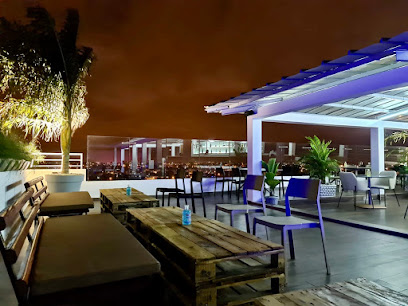
Life Star
Discover Abidjan's nightlife at Life Star, a premier bar offering lively entertainment, exquisite cocktails, and an unforgettable atmosphere.
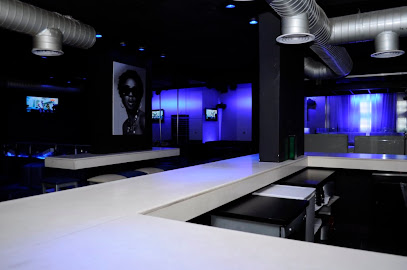
SKINNY LOUNGE
Discover the lively atmosphere of Skinny Lounge, a premier bar in Abidjan, perfect for cocktails and nightlife with locals and tourists alike.
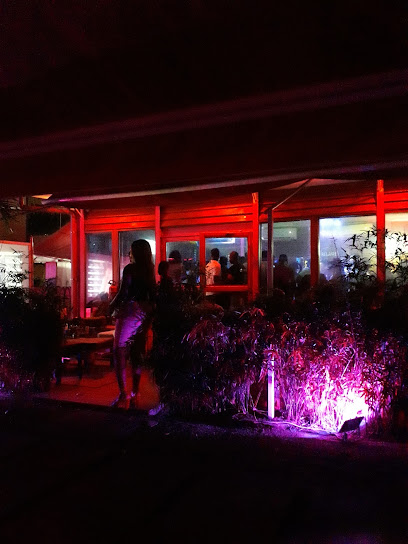
Ninety Degree 90°
Experience the vibrant nightlife at Ninety Degree 90°, Abidjan's top cocktail bar featuring live music and exquisite drinks.
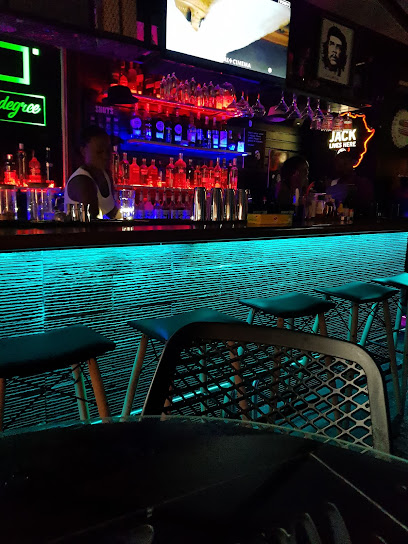
Le FéLaH
Experience the vibrant nightlife of Abidjan at Le FéLaH, a chic lounge and restaurant offering delicious cuisine and a lively atmosphere.
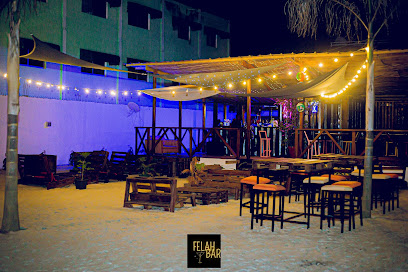
Calypso CI
Experience the vibrant nightlife of Abidjan at Calypso CI, an enchanting lounge offering exquisite drinks and local cuisine in a stylish setting.
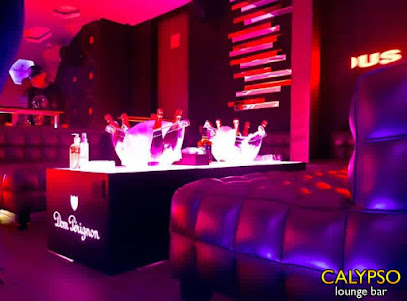
Master Club
Discover the vibrant nightlife of Kotobi at Master Club, a lively bar offering a variety of drinks and a welcoming atmosphere for all.
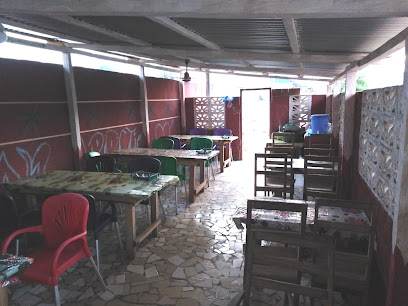
DO LOUNGE
Discover DO LOUNGE in Abidjan: A vibrant restaurant and lounge offering a unique blend of local flavors and nightlife in a chic setting.
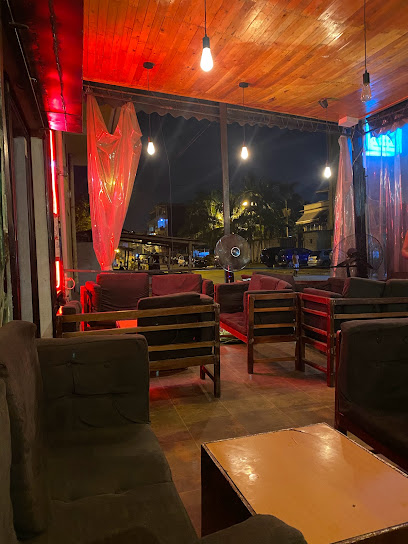
CAVE LT MANADJA NGATTAKRO
Experience the lively charm of Cave LT Manadja Ngattakro in Bouaké, a welcoming bar offering local drinks and a vibrant atmosphere for all visitors.
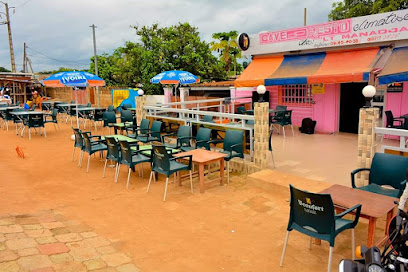
Local Phrases about Comoe River
-
- HelloAlo
[ah-loh] - GoodbyeEhon
[eh-hon] - YesEe
[ee] - NoAa
[ah] - Please/You're welcomeI ni se
[ee nee seh] - Thank youEse
[eh-seh] - Excuse me/SorryEhweh
[eh-weh] - How are you?I ni la sa?
[ee nee lah sah] - Fine. And you?Mi e bo. I la?
[mee eh boh. ee lah] - Do you speak English?I la nii Englesa?
[ee lah nee eng-leh-sah] - I don't understandMi ni la fii
[mee nee lah fee]
- HelloAlo
-
- I'd like to see the menu, pleaseMi la nii kpe kpe, I ni se
[mee lah nee kpeh kpeh, ee nee seh] - I don't eat meatMi ni la hwene kpo
[mee nee lah hweh-neh kpo] - Cheers!Kpe
[kpeh] - I would like to pay, pleaseMi la nii le, I ni se
[mee lah nee leh, ee nee seh]
- I'd like to see the menu, pleaseMi la nii kpe kpe, I ni se
-
- Help!Ayi!
[ah-yee!] - Go away!E deh
[eh deh] - Call the Police!Ni la nii Polis!
[nee lah nee poh-lees!] - Call a doctor!Ni la nii docteur!
[nee lah nee dohk-tuhr!] - I'm lostMi la nii weh
[mee lah nee weh] - I'm illMi la nii kpe
[mee lah nee kpeh]
- Help!Ayi!
-
- I'd like to buy...Mi la nii...
[mee lah nee] - I'm just lookingMi na fii kpe
[mee nah fee kpeh] - How much is it?Nya kpe?
[nyah kpeh] - That's too expensiveWu kpe
[woo kpeh] - Can you lower the price?I la nii kpe, I ni se
[ee lah nee kpeh, ee nee seh]
- I'd like to buy...Mi la nii...
-
- What time is it?Nya kpe la?
[nyah kpeh lah] - It's one o'clockE kpe na gba
[eh kpeh nah gba] - Half past (10)E gba me (10)
[eh gba meh] - MorningYeh
[yeh] - AfternoonBlou
[bloh] - EveningZiou
[zee-oh] - YesterdayNi zin
[nee zeen] - TodayNi zi
[nee zee] - TomorrowNi zin kpe
[nee zeen kpeh] - 1E
[eh] - 2Me
[meh] - 3Kpe
[kpeh] - 4Na
[nah] - 5Gba
[gba] - 6Me gba
[meh gba] - 7Me na
[meh nah] - 8Me kpe
[meh kpeh] - 9Me na kpe
[meh nah kpeh] - 10Me gba kpe
[meh gba kpeh]
- What time is it?Nya kpe la?
-
- Where's a/the...?Nya kpe...
[nyah kpeh] - What's the address?Nya ni la?
[nyah nee lah] - Can you show me (on the map)?I la nii, I ni se
[ee lah nee, ee nee seh] - When's the next (bus)?Nya kpe la nii (bus)?
[nyah kpeh lah nee] - A ticket (to ....)E kpe (to ....)
[eh kpeh]
- Where's a/the...?Nya kpe...
History of Comoe River
-
The Comoe River has been a vital part of the lives of ancient civilizations that settled along its banks. Archaeological evidence suggests that early human settlements thrived here due to the fertile land and abundant water supply. These early communities engaged in agriculture, fishing, and trade, laying the foundations for complex societies.
-
During the 11th and 12th centuries, the Comoe River was a significant geographical feature for the Kingdom of Kong. This powerful kingdom utilized the river for trade, connecting them to other West African states. The river enabled the transport of goods such as gold, ivory, and kola nuts, which were highly sought after in regional and trans-Saharan trade networks.
-
In the late 19th century, European powers, particularly the French, began exploring the Comoe River region. The river served as a natural route for explorers and colonial administrators seeking to map the interior of West Africa. French colonization led to the establishment of trade posts along the river, facilitating the extraction of resources and further entrenching colonial control.
-
In 1968, the area surrounding the Comoe River was designated as Comoe National Park, one of the largest protected areas in West Africa. The park aims to preserve the unique biodiversity and ecosystems associated with the river. It is home to diverse wildlife, including elephants, hippos, and a variety of bird species, making it a critical area for conservation efforts.
-
The Comoe River holds profound cultural significance for the local communities that inhabit its banks. Various ethnic groups, including the Akan, Senoufo, and Lobi, have deep-rooted cultural practices and traditions linked to the river. It is a source of life, inspiration, and spirituality, playing a central role in local folklore and rituals.
-
Today, the Comoe River continues to be an essential resource for the people of Cote d'Ivoire. It supports agriculture, fishing, and provides water for domestic use. However, the river faces environmental challenges such as pollution and overfishing, which threaten its health and sustainability. Efforts are underway to address these issues and ensure the river remains a vital lifeline for future generations.
Comoe River Essentials
-
The Comoe River is located in Côte d'Ivoire (Ivory Coast), primarily meandering through the Comoe National Park in the northeastern part of the country. The nearest major city is Abidjan, which is served by Félix-Houphouët-Boigny International Airport. From Abidjan, you can take a domestic flight to Bondoukou, a town close to the Comoe River. Alternatively, you can travel by road; the journey from Abidjan to Bondoukou takes approximately 7 to 8 hours by car or bus.
-
Within the area surrounding the Comoe River, transportation options include local taxis, buses, and motorbikes. Taxis can be hired for day trips to explore the river and nearby attractions. For those who prefer a more independent means of travel, renting a car from Abidjan is also a viable option. Be sure to carry a map or GPS, as some rural roads may not be well-marked. Public buses connect Bondoukou to smaller villages, but schedules can be irregular.
-
The official currency in Côte d'Ivoire is the West African CFA franc (XOF). Credit cards are accepted in major hotels and some restaurants in larger towns like Bondoukou. However, it's advisable to carry cash, especially when traveling to rural areas and smaller establishments. ATMs are available in Bondoukou, but it is a good idea to withdraw sufficient cash in Abidjan before heading to more remote areas.
-
The Comoe River area, including Comoe National Park, is generally safe for tourists. However, it's essential to take standard precautions. Avoid walking alone at night and keep an eye on your belongings in crowded places. Some areas in Abidjan and other major cities have higher crime rates, particularly for crimes targeting tourists, such as pickpocketing and scams. Always stay vigilant and avoid displaying valuable items openly.
-
In case of an emergency, dial 170 for police assistance or 185 for medical emergencies. Bondoukou has a hospital and several clinics for medical needs. It is recommended to have travel insurance that covers medical emergencies, including evacuation if necessary. For minor health issues, there are pharmacies in the town where you can purchase over-the-counter medications.
-
Fashion: Do dress modestly, especially when visiting villages and religious sites. Lightweight and breathable clothing is recommended due to the tropical climate. Religion: Do respect local customs and traditions. Always ask for permission before taking photos of people or religious ceremonies. Public Transport: Do be considerate and respectful on public transport. Don't eat or drink on buses and taxis. Greetings: Do greet people with a handshake or a friendly 'Bonjour'. Eating & Drinking: Do try the local cuisine and accept food offerings graciously. Don't refuse hospitality, as it is considered impolite.
-
To experience the Comoe River like a local, consider visiting local markets where you can purchase fresh produce and traditional Ivorian goods. Engage with locals, who are often friendly and eager to share stories about their culture and history. Take a guided tour of Comoe National Park to learn about the unique flora and fauna. Don't miss the opportunity to take a boat ride on the Comoe River for a serene and picturesque experience.
Trending Landmarks in Comoe River
Nearby Cities to Comoe River
-
Things To Do in Takoradi
-
Things To Do in Sekondi-Takoradi
-
Things To Do in Yamoussoukro
-
Things To Do in Sassandra
-
Things To Do in Cape Coast
-
Things To Do in Sunyani
-
Things To Do in Kumasi
-
Things To Do in San-Pédro
-
Things To Do in Daloa
-
Things To Do in Accra
-
Things To Do in Koforidua
-
Things To Do in Ho
-
Things To Do in Kpalimé
-
Things To Do in Wa
-
Things To Do in Lomé









